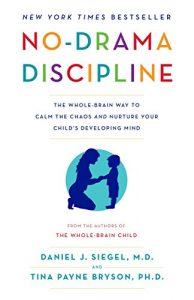
Sign in
Don't have an account with us? Sign up using the form below and get some free bonuses!

This is an excerpt of an interview with Tina Payne Bryson, Ph.D., where she
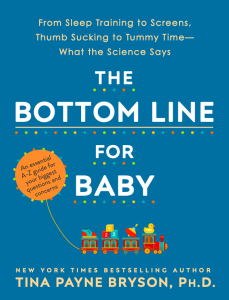
discusses her incredible new book, The Bottom Line for Baby -- along with several game-changing parenting tips. You can find the full interview here. Or, here's Part 1 of our discussion if you missed it.
In this segment, we discuss the question, "Why don't we remember being babies?" We also cover how baby memory and memory function work, and how baby memory relates to children's growth and development.
So let me get straight to some brain science with you.
Former baby here. I confess. I used to be a baby. [laughter]
I don't remember much of it at all. My daughter, on the other hand, claims she remembers the womb. I don't personally remember the womb and anything after it for a good long time.
So, if we don't really remember our earliest months our earliest year on Earth, how do we know that any of it matters? Why don't we remember being babies?
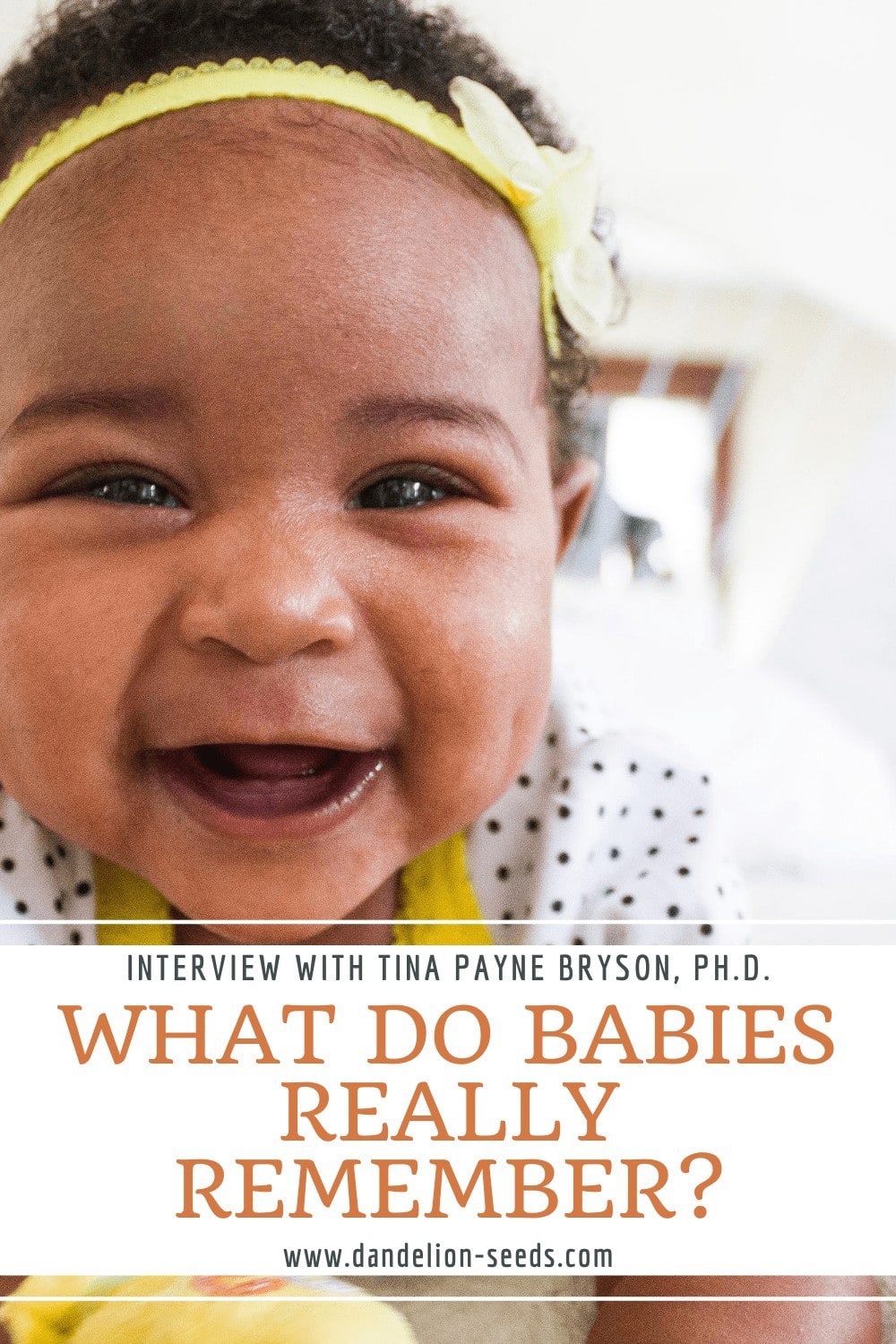
That's such a great question. Actually, most of us have what's called childhood amnesia until about age 5, where we don't really remember much.
We may have one or two memories from before age 5 or 6, but they typically tend to be something that was a huge change.
I have an early, early memory around age three, when I had to be taken to the hospital to get stitches on my head. I remember being in my 70s purple poncho with the little palms in my dad's arms and I remember the parking lot.
I remember some things about it, but that's the only thing I remember from that age.
That's really typical for most of us not to remember. However, when we say we don't remember, we're actually talking about something called explicit memory. Dan and I write about this in The Whole-Brain Child.
That memory is where you remember something and it has the feel of remembering. You know you're remembering.
If I were to say to you, "What did you have for breakfast this morning?" You could tell me. You would know you are remembering that fact, but there's also something called implicit memory.
Implicit memory is where you are remembering but you don't know you're remembering. It doesn't have the feel of that.
An example of that is what's called a type of implicit memory is called procedural memory.
When you get in your car and you drive you're able to do that because you remember all of the the motor activity and attentional resources and all the things you need to do in order to drive your car.
But when you get in, and you put your seatbelt on, and you put your car in reverse, and you start backing up, you're not thinking "I am now remembering how to drive a car." You just know how to do it.
Memory is association. That's really all memory is.
When I say "Drinking hot chocolate that's too hot, or coffee, that's too hot, you all know the physical sensation of when you burn your mouth and it feels like sandpaper. All of those are associations with those experiences.
That's the implicit memory.
We believe that implicit memory may even start in the womb.
-Tina Payne Bryson on Why Don't We Remember Being Babies and Baby Memory
So, when people say "Don't worry about this medical procedure, don't worry about this trauma that happened to your child because they won't remember it," they mean they won't remember it explicitly.
But the body keeps the score. That's Bessel Van der Kolk's title of his book about trauma, that I love. Our implicit memory remembers that, and it's important because the purpose of our memory is to keep us safe.
My son had a kind of traumatic swimming lesson experience when he was about four. He didn't really "remember it" remember it, but later when it was time to go to swimming lessons, even though he could already swim,
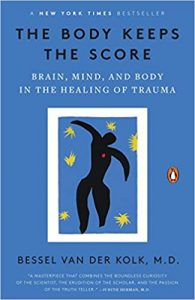
and he loved swimming with his friends, when I said the words "swimming lessons," he was immediately like, "Do I have to go?"
His brain remembered whatever that is, is a bad idea.
So, you know when we touch something hot, it's painful. Our brain remembers that so we don't do it again.
Even in those early first five or six years, that is when the brain has the most changes happening, most of them happening between zero to three. It's the period of the most connections and brain change.
The second period of the most brain changes is during adolescence.
So let me say it this way, Sarah. What happens to us in our early months and years matters tremendously, but it doesn't mean that it's that our history is always our destiny.
- Tina Payne Bryson on Why Don't We Remember Being Babies?
So if we do have difficult things that happen to us in our early years, they are important, but it doesn't mean that there's no hope.
So, the brain is plastic [neuroplasticity] and we can make changes or process difficult things that happened.
One of the things I'll say related to the science of this is [the existence of] regulatory circuitry, which is really the part of the brain that helps us regulate our emotions and regulate our attention and regulate our bodily states.
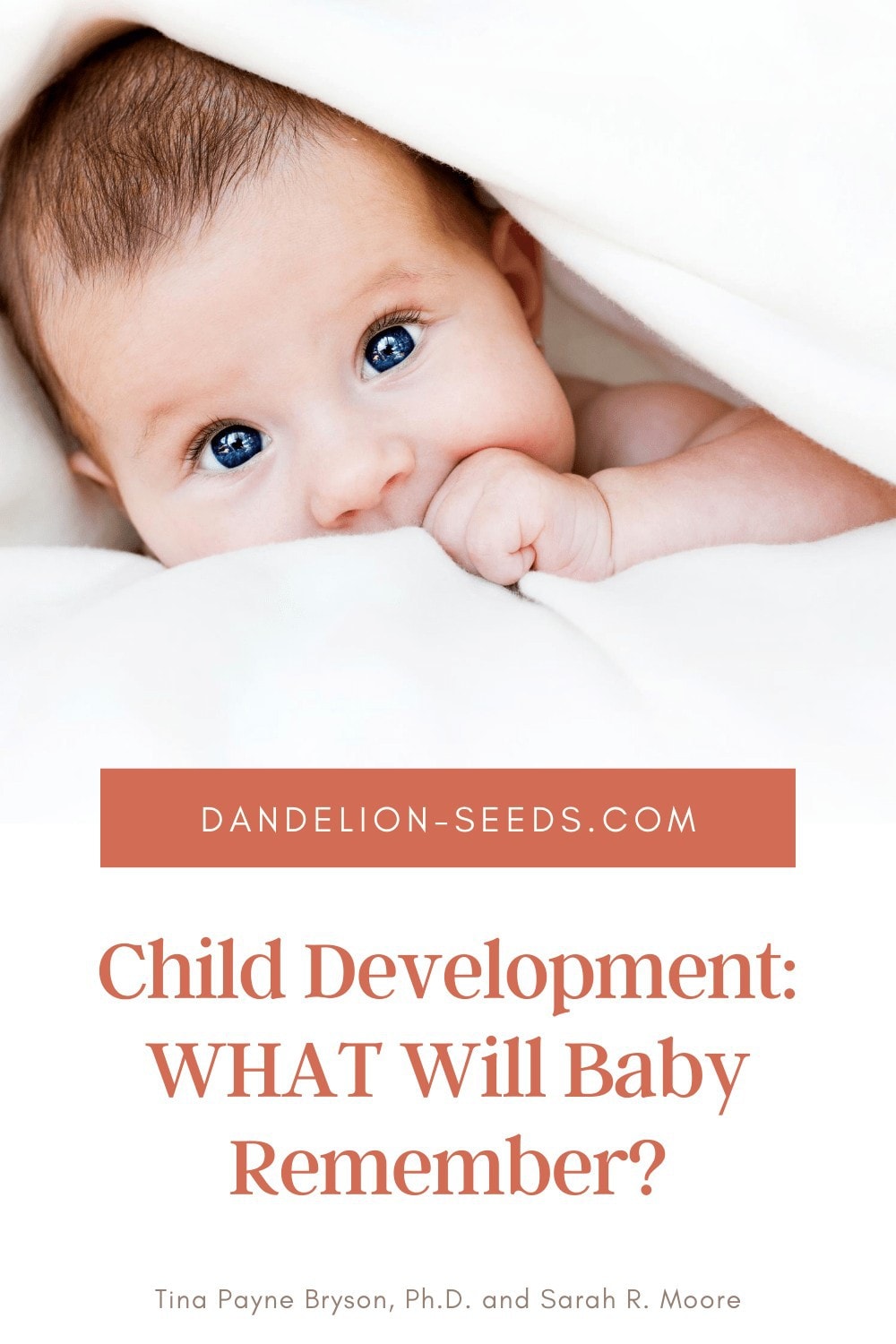
It's the part of our brain that allows us to really be grounded and get back to baseline when we have challenges or adversity. The regulatory circuits of the brain are set up in the first 18 months.
So those early, early months, the way we respond to our infants by helping them feel safe, by helping them build trust that their needs will be seen in responded to -- that we help regulate their bodily states and their emotions and their attention -- by us doing that with them, we are actually setting up the regulatory circuits of the brain so that they have a greater capacity to regulate themselves better for the rest of their living years.
-Tina Payne Bryson on Why Don't We Remember Being Babies and Baby Memory
That is a fantastically clear explanation of baby memory [and why don't we remember being babies] -- something that is, you know worth of volumes of encyclopedia materials. Thank you for that.
***
In Part 3 of our interview series, we'll discuss co-regulation versus self-soothing -- and the best way to help our children develop executive functioning skills. Stay tuned!
